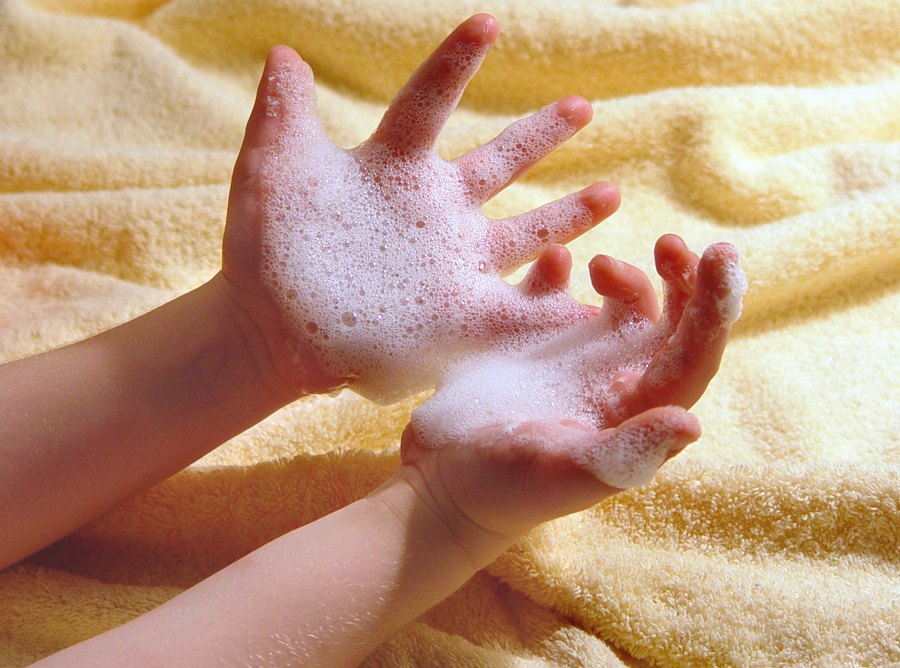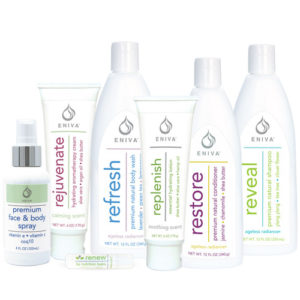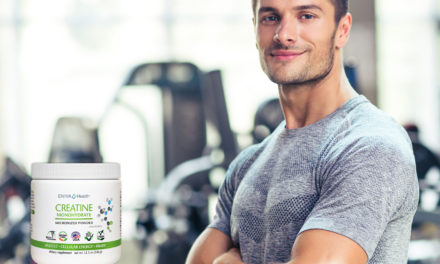
What’s really in your body wash, shampoo and conditioner?
You watch what you eat, you exercise, and you try to make sure everything that goes into your body is good for you. But what about what’s going on your body? Did you know that more chemicals enter our bodies through our skin than through what we eat? Our skin is the largest organ in the body – and has greater potential to absorb harmful toxins.
Studies have shown that more than one-third of all personal care products contain at least one ingredient that has been related to cancer. In fact, a survey by the Environmental Working Group found that more than 25 percent of all women and one in every 100 men use at least 15 products daily that could contain toxins and carcinogens.
Toxins in Skin Care: Read the Labels
If you want to avoid toxins in your skin care products, the best thing to do is read labels. Look at the ingredients listed on the tube or bottle of your favorite shampoo, soap or moisturizer. Can you understand the ingredients? Or does it read like a science experiment? Educating yourself is key to keeping these toxins out of your body.
- Look for ingredients that are USDA approved as 100% Certified Organic.
- Avoid chemical names ending in “acid” or “alcohol.”
- Avoid anything that contains synthetic colors or fragrances, mercury or triethanolamine.
Toxins in Skin Care: Avoid Parabens and Phthalates
Parabens and Phalates have been banned by the European Union and are known carcinogens.
Parabens (including methyl-, ethyl-, propyl-, benzyl- and butylparabens) are used as preservatives in cosmetics. Research indicates they may disrupt hormonal pathways and increase the risk for breast tumors and reproductive problems.
Phthalates are a truly toxic skin care ingredient. They help lotions absorb into the skin but have been linked to cancer, birth defects and to disrupt hormones in people. Look for the words “dibutylphthalate” and “diethylphthalate” on a label to avoid this ingredient. They may also be listed by the abbreviations DEHP, DINP, BzBP, DBP, DEP or DMP.
Read more about Phthalates and Asthma: Scientific Study links phthalates to elevated asthma risk in children.
Toxins in Skin Care: Artificial colors and fragrances
There is a big push to stop using and consuming artificial colors in our foods. Did you know artificial colors might also be in your skin care products? Several additives have been linked to skin irritation and allergic reactions, and some have been linked to cancer in scientific studies. Artificial colors also have significant potential to worsen underlying skin conditions such as eczema. Look for D&C or FD&C on the label.
Artificial fragrances are also something to avoid in your beauty products. These fragrances are often blended petro-chemicals full of contaminants that are harmful to your body. In fact, the word “fragrance” is often used to cover nearly 4,000 ingredients and most are synthetic, cancer causing or otherwise toxic. Exposure to fragrances has been also shown to affect the central nervous system.
Toxins in Skin Care: Carcinogens
The amount of known carcinogens in skin care products can be staggering. To avoid these products look for these words or abbreviations in the ingredient list:
Diethanolamine (DEA), TEA and MEA: The National Toxicology Program (NTP) completed a study that found an association between using DEA ingredients on the skin and cancer in laboratory animals.
Diazolidinyl Urea or Iodopropynyl butylcarbamate: This is a formaldehyde releaser used as a preservative. Formaldehyde is a known human carcinogen.
Perfluorinated chemicals (PFCs): PFCs have been shown to cause cancer in rats, may cause birth defects, may damage the immune system and disrupt thyroid function. PFCs are often hidden in cosmetic ingredients with the words “fluoro” or “perfluoro” in them.
Polyethylene Glycol (PEG): is used in many hair and skin care products. They’re also used in spray-on oven cleaners because they can dissolve oil and grease. But, when used on your body they’ll remove protective oils from the skin and hair, making them more vulnerable to other toxins.
Toxins in Skin Care: Talc & Mineral Oil
Sometimes even ingredients you can understand aren’t the best things to put on your body. Mineral oil is a petroleum derivative that coats the skin. While it can moisturize your skin, it is also preventing your skin from breathing and slows down natural cell development. Moms and dads take note: baby oil is 100% mineral oil and should be avoided.
Talc can be found in makeup, baby powder and foundation. It has also been as been linked to ovarian and testicular cancer.
Would you put car products on your skin?
It’s hard to imagine putting antifreeze on your skin – but that’s essentially what you’re doing if your beauty products have propylene glycol in them. Propylene glycol is a key ingredient found in antifreeze. It’s in everything from makeup to toothpaste to deodorant. It can be very drying and irritating to the skin and has been linked to brain, kidney, and liver problems. In fact, stick deodorants have a higher concentration of propylene glycol than is allowed for most industrial use.
Antifreeze isn’t the only ingredient related to cars that can be found in skin care products. Sodium Lauryl Sulfate or Sodium Laureth Sulfate (SLS) is a harsh degreasing foaming agent used in engine degreasers. It’s also one of the most common ingredients in personal body care products. But, SLS dissolves the useful oils on your skin and can really dry out your skin.
Keeping your beauty routine toxin-free can be tough – but it is possible. Click here to see more from the Enivronmental Working Group’s Cosmetic Database. Eniva is dedicated to producing natural, toxin-free, safe products for the body. Our brand new line of salon-quality Shampoo, Body Wash and Conditioner, along with hydrating lotion, therapy cream and lip nutrition provide the user superior performance and a spa-style experience.

To learn more about Eniva’s natural skin and beauty products, click here.
Have you gone through your family’s skin care products lately? How many products with toxic ingredients have you found to toss?
*This statement has not been evaluated by the Food and Drug Administration. This product is not intended to diagnose, treat, cure, or prevent any disease. Any research referred to in this article is not meant to be interpreted as research results involving specific Eniva products.
At Eniva, we believe each human body was designed to be healthy. It was designed to be energetic, lean, agile, and resilient towards healing. You were created to live an abundant, healthy and vibrant life. Eniva is proud to create and manufacture pure liquid nutraceuticals with no artificial preservatives. Our liquid supplements are natural solutions to help you feel and look your best.



